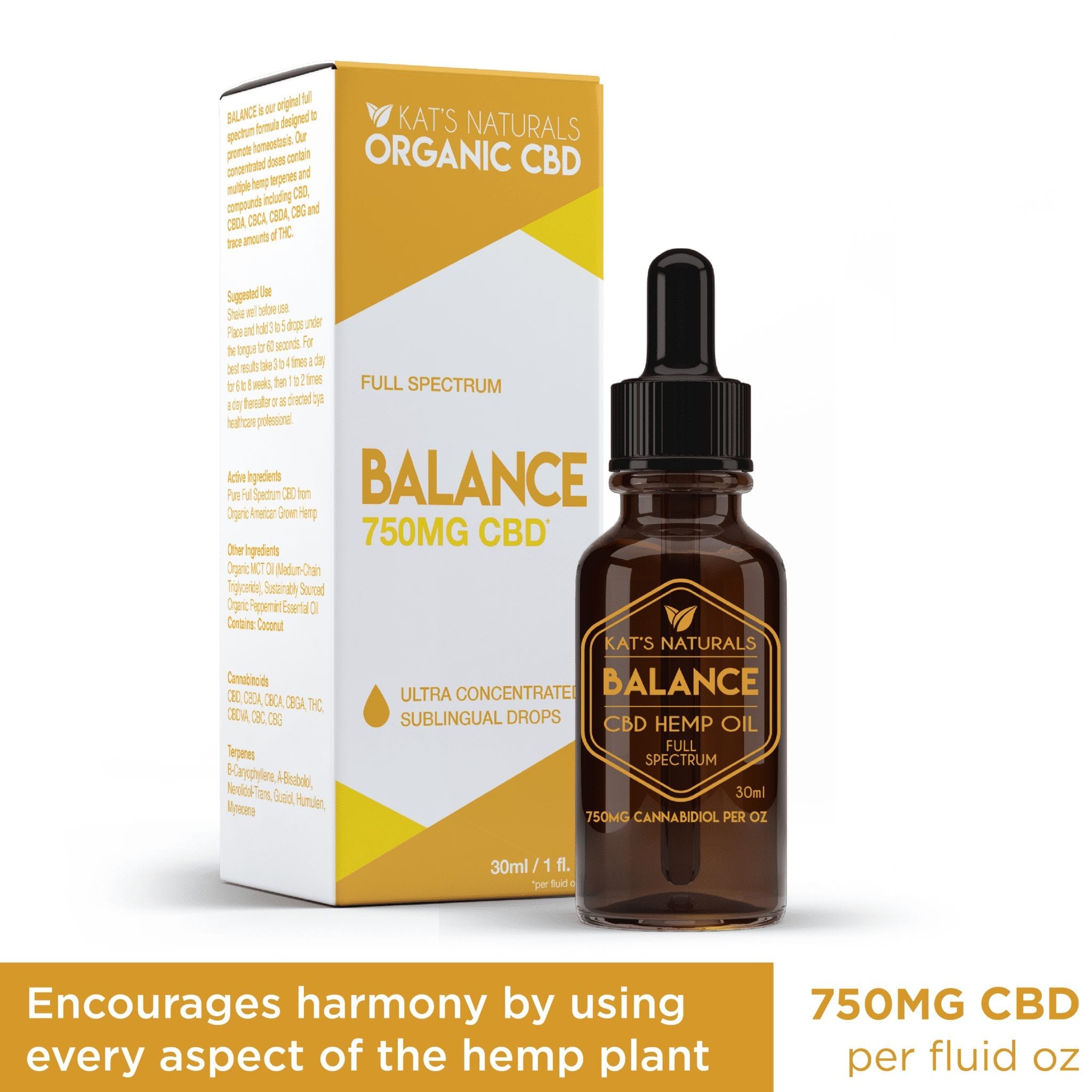No products in the cart.
A Beginner’s Guide to CBD and Hormonal Balance
When you think of CBD, you probably consider all of the reasons people love to use it. Many consumers enjoy using CBD because studies suggest that it can help soothe the mind, enhance energy, relieve pain, rejuvenate the body, reduce inflammation, and much more. However, did you know that researchers also report that CBD may help improve hormonal balance?
Cannabidiol, the formal term for CBD, is one of more than 85 cannabinoids that organically exist in the cannabis sativa plant. In 1940, a chemist named Roger Adams discovered CBD after he successfully extracted it.
However, he wasn’t immediately aware that he had pulled out the chemical compound. In fact, it wasn’t until years later that Adams and other scientists realized the gravity of his extraction. And by 1946, many researchers were excited to learn more about Adams’ new discovery.
Ongoing research has continued to help scientists confirm that CBD has the ability to increase people’s quality of life. When the non-psychoactive cannabinoid binds to the CB1 and CB2 receptors in the endocannabinoid system, it helps release the therapeutic effects that many people talk about today.
However, the therapeutic effects that people typically discuss don’t usually center around CBD and hormonal balance. But if you’re interested in taking advantage of everything CBD has to offer, you might be curious to know how the cannabinoid can help.
What are hormonal balance and hormonal imbalance?
If you want to achieve hormonal balance, you first have to understand hormonal imbalance and grasp the full nature of hormones.
Hormones are chemical messengers secreted directly into your blood. Once there, your bloodstream delivers all of your hormones to tissues and organs so that your hormones complete their functions.
These functions vary widely, so there are different hormones to carry out your body’s various processes. Some of these processes include the following:
- Metabolizing your food
- Maintaining your thirst and body temperature
- Sustaining your sexual function and reproductive health
- Keeping up your cognitive function and mood
- Maintaining your growth and development
Fulfilling these functions requires your endocrine system—a formal way of saying the hormonal system—to rely on various glands that release different hormones. The list of endocrine glands include:
- Ovaries
- Testes
- Thymus
- Pituitary gland
- Pancreas
- Thyroid
- Pineal gland
- Adrenal glands
These glands only have to push out small amounts of hormones to bring changes to your body. However, if you receive too much or too little of a particular hormone, it can result in serious effects, including hormonal imbalance.
That said, hormonal balance simply means that your body has the proper amount of a specific hormone.
What are the symptoms of hormonal imbalance?
If you’re unsure whether you’re struggling with hormonal imbalance, many tell-tale signs can give you insight. And those signs can differ in both men and women.
For men, hormonal imbalance might lead to the following symptoms:
- Breast tenderness
- Erectile dysfunction
- Development of breast tissue
- Reduction in body hair and beard growth
- Struggling to concentrate
For women, the symptoms of hormonal imbalance might lead to the following:
- Irregular or heavy periods
- Vaginal dryness
- Vaginal atrophy
- Excessive hair growth on the face, chin, or other parts of the body
- Discomfort or pain during sex
- Night sweats
- Darkening of skin along the groin, neck creases, and underneath the breast
There are times where men and women may experience the same symptoms when their hormone levels are out of whack. The list of similar signs include:
- Decreased sex drive
- Hair loss or thinning
- Loss of muscle mass
- Breakouts on the skin
- Weight gain
- Sudden weight loss
- Extreme fatigue
- Migraines
- Nausea
- Dry skin
- Tender, achy, or stiff muscles
- Increased hunger or thirst
- Anxiety or nervousness
- Irritability
- Depression
- Infertility
Regardless of whether you’re a male or female, having one of these symptoms may not be a cause for concern. However, if you find yourself ticking off most of the side effects on these lists, you might want to consider whether or not you’re struggling with hormonal imbalance.
Common treatments for hormonal imbalance
If you discover that you’re experiencing hormonal imbalance, you should take concrete steps to soothe the condition. However, how you choose to do that will determine how effective you are at eliminating the hormonal imbalance.
Some of today’s common remedies include the following:
- Hormone replace therapy
- Vaginal estrogen
- Low-dose antidepressants
- Gabapentin
- Clonidine
- Osteoporosis medications
While heavily marketed as great solutions, most of today’s typical remedies can produce unpleasant side effects. One of the more frustrating consequences is concerning each solution’s inability to actually solve the cause of hormonal imbalance.
Even though you may encounter relief while using these treatments, you can’t stop using them once you feel better. If you do, your symptoms may come roaring back.
But what’s even more concerning is the link between hormone therapies and breast cancer. Estrogens, which are a group of female sex hormones, are known as human carcinogens. And while these hormones play a crucial role in men and women, researchers link them to an increased risk of certain cancers.
Studies suggest menopausal hormone therapy, which centers around estrogen, increases women’s chances of getting breast cancer. Moreover, these hormone therapies can also lead to endometrial cancer.
The positive link between CBD and hormonal balance
The potential consequences of using common treatments for hormonal imbalance are great reasons to start looking for more natural solutions, especially since there’s a positive link between CBD and hormonal balance.
Researchers believe that there may be many therapeutic effects of CBD on hormone regulation in the following ways.
1. CBD for sleep hormones
You may have heard that CBD helps deepen your sleep. However, one of the ways it enhances your sleep quality is by jumpstarting the secretion of sleep hormones like melatonin.
After activating receptors in the pineal gland, CBD helps balance out your hormonal system to improve your sleep patterns so that you wake up well-rested and refreshed.
What’s also interesting to note is the role CBD plays in reducing imbalanced cortisol levels in your blood. When you use CBD, it decreases the levels of this important hormone. And that decrease leads to less stress, relaxation, and improved sleep patterns.
2. CBD for sex hormones
The pituitary gland and hypothalamus directly control the secretion of sex hormones. And experts believe that cannabinoids can affect the hypothalamic-pituitary-gonadal axis.
What’s even more interesting is that there may be a link between CBD’s anti-inflammatory properties and reproductive health. Integrative OB-GYN Felice Gersh, MD. explained in a Well + Good article that CBD may help reduce menstrual cramps, premenstrual syndrome, osteoarthritis, and fibromyalgia, which could all help restore hormonal balance.
3. CBD for metabolic hormones
One of the most common endocrine diseases that you can experience is diabetes, which occurs when you have a reduction in insulin production in the pancreas.
Insulin is responsible for balancing your energy levels and metabolism by regulating how much nutrients your body absorbs and stores. However, when an imbalance occurs, it can lead to diabetes, heart disease, and obesity.
Some studies have shown that CBD positively impacts the pancreas’ function and your insulin levels to ultimately influence your blood sugar levels. By doing so, CBD helps mitigate your risk of developing diabetes because your insulin levels are maintaining balance.
How does CBD help with hormonal balance?
CBD oil may help promote hormonal balance, but how exactly does this occur? The answer centers around the endocannabinoid system.
This complex network in your body helps regulate a wide variety of functions, and researchers also link it to your endocrine system. Studies indicate that your endocannabinoid system is responsible for activating receptors that live in your endocrine system.
And researchers have also discovered that different endocrine glands are home to endocannabinoid receptors. As a result, CBD has the ability to activate and interact with the receptors in your endocrine glands.
This interaction is the reason behind the positive link between CBD and hormonal balance. By activating specific cannabinoid receptors, CBD decreases hormonal imbalance to improve your sleep, metabolism, sexual behavior, and stress signals.
However, what’s also interesting is that researchers believe endocannabinoids can control the growth of various types of endocrine cancer cells. Studies suggest that endocannabinoids help prevent cell growth and metastasis in breast, thyroid, and prostate tumors.
Key takeaways on CBD and hormonal balance
While researchers are still diving into the positive correlation between CBD products and hormonal balance, current studies still provide promising results.
Reports show that CBD has effects on sleep hormones, sex hormones, and metabolic hormones. And these health benefits may help achieve hormonal balance so that you experience long-term comfort and a quality of life that makes you excited.





